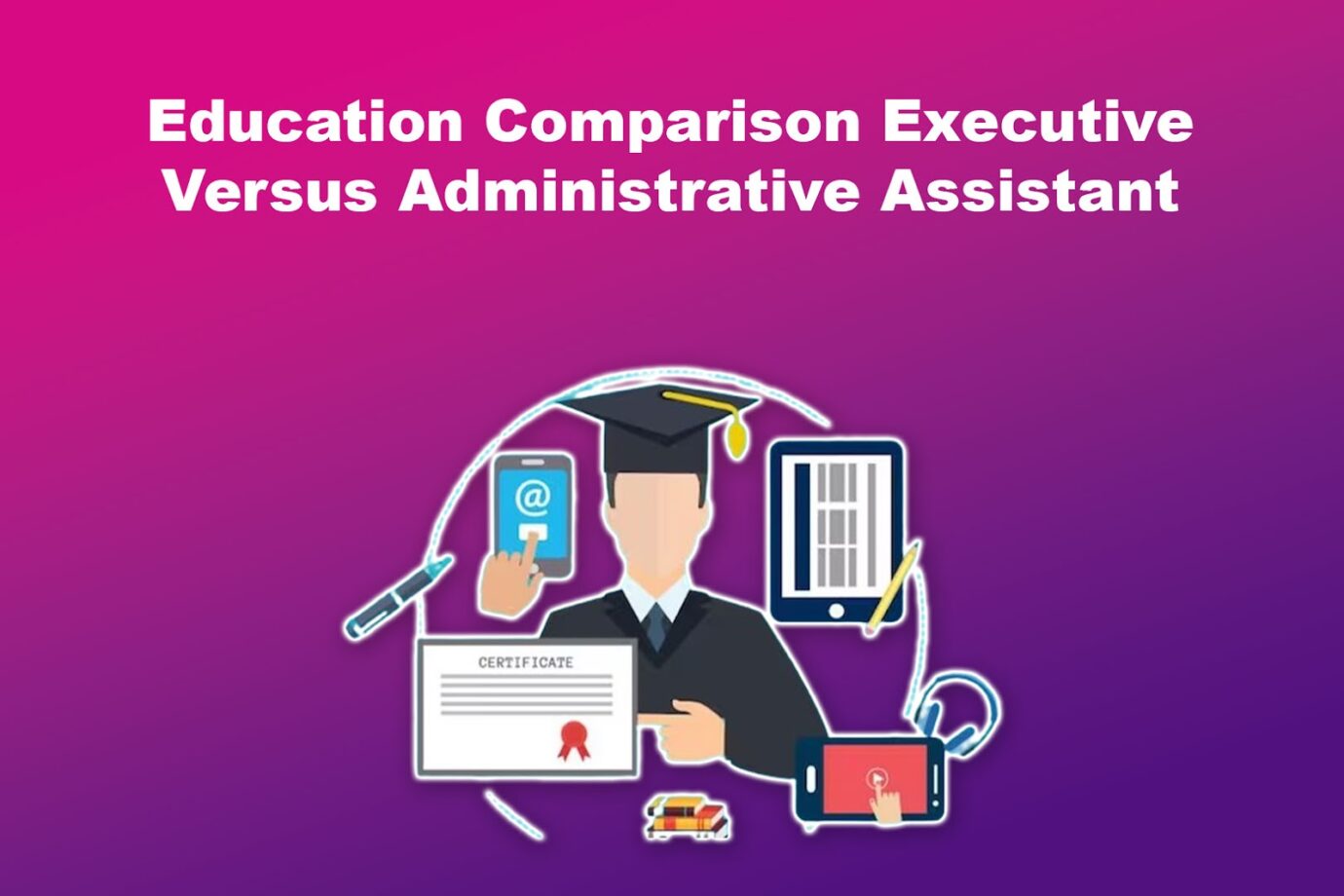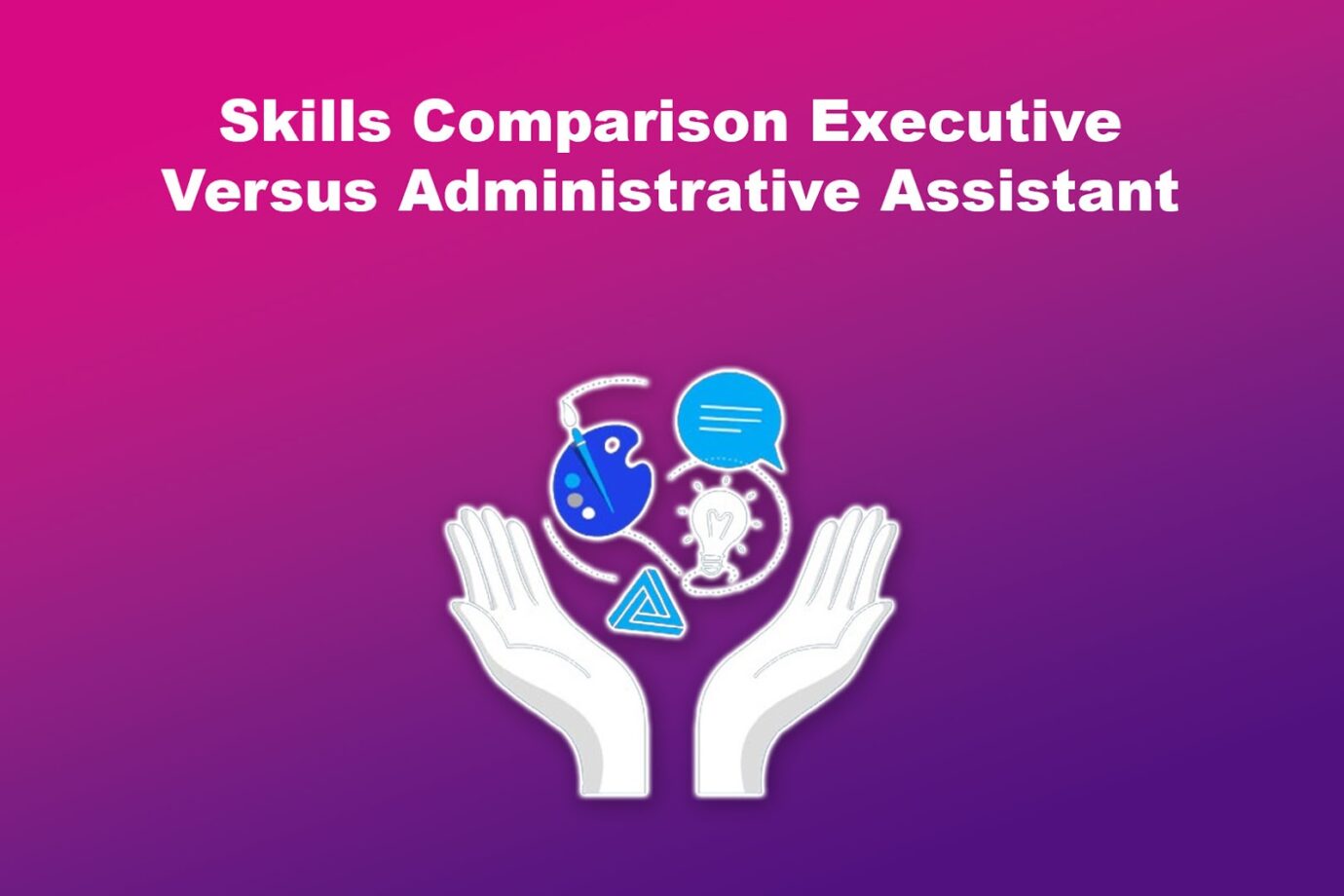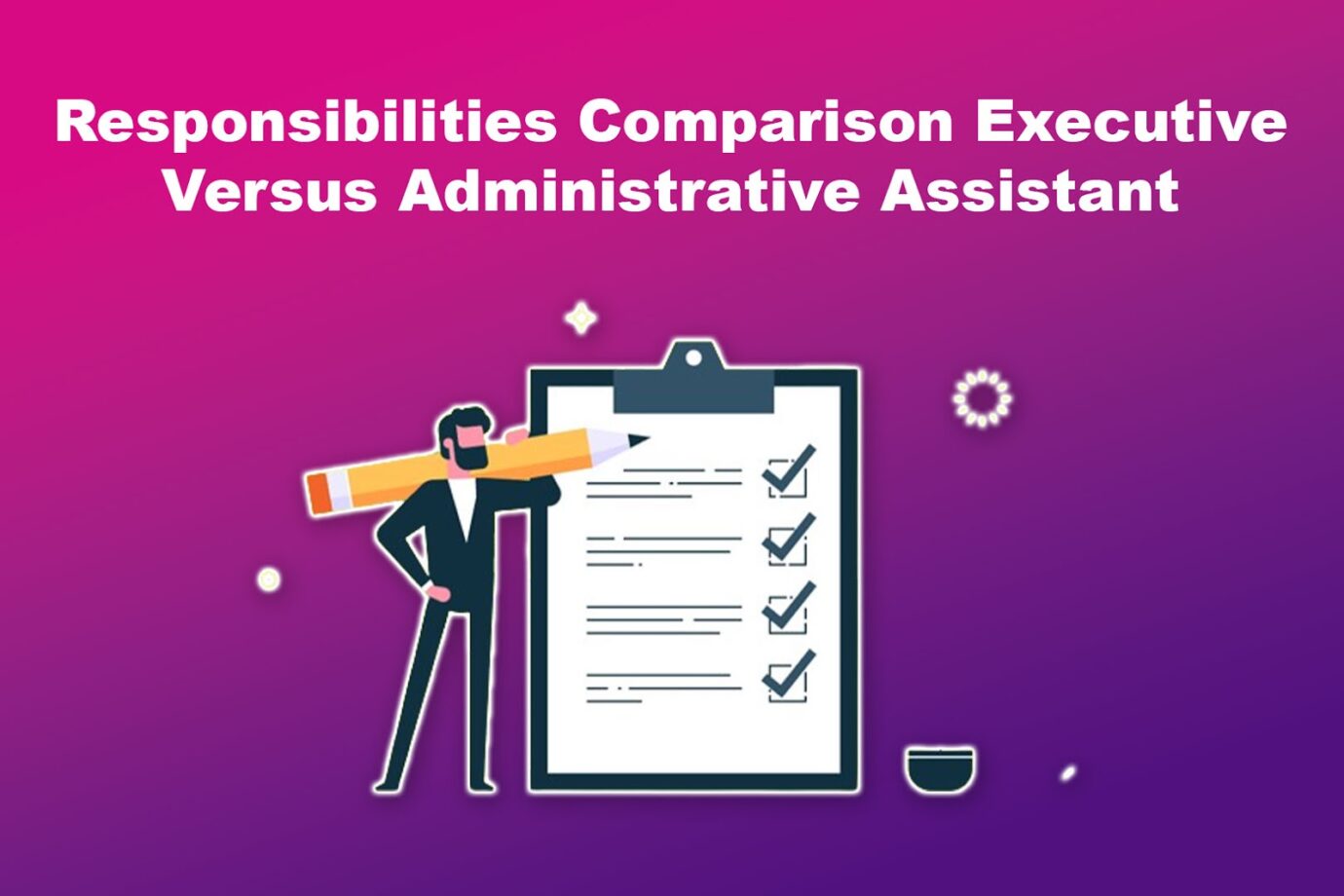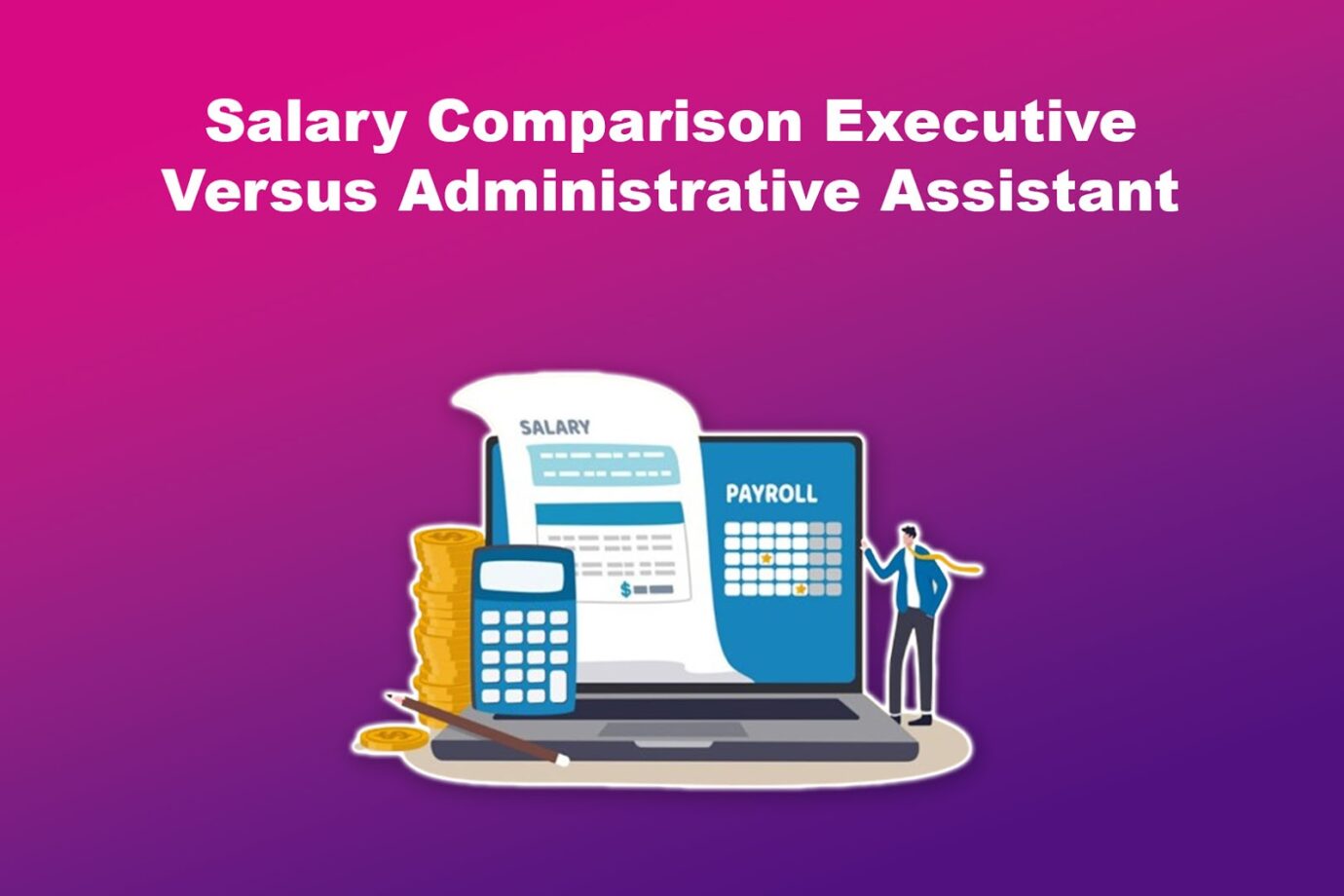Executive and administrative assistants both play a crucial role in ensuring the smooth flow of an organization. However, while both positions involve administrative tasks, they differ in authority, assigned tasks, and decision-making.
Understanding these roles’ distinctions can help determine which suits you or your company. This article will clarify the notable differences and guide how you can go from an administrative assistant to an executive assistant.
Let’s dive into the executive assistant vs administrative assistant debate.

What Is an Executive Assistant?
An executive assistant is someone who provides administrative support to high-level executives, such as CEOs or presidents. They prioritize phone calls and emails, arrange meetings, coordinate travel arrangements, and perform various other administrative tasks.
In addition to these responsibilities, executive assistants must possess exceptional organizational and multitasking abilities and excellent communication skills. They must be proficient in maintaining confidentiality and handling sensitive information with discretion.
What Is an Administrative Assistant?
An administrative assistant is a professional who provides clerical and administrative support to individuals or organizations. Their duties include managing schedules, coordinating meetings, and preparing reports. You can also entrust them with confidential information or database management.
As such, they must interact with customers, answer phone calls, and respond to emails. To succeed, an administrative assistant must possess excellent organizational, communication, and time-management skills.
Discover more about administrative assistants from Linkedin.
5 Comparisons Between an Executive Assistant and Administrative Assistant
These are the five executive vs. administrative assistants comparisons:
1. Education

Executive Assistant
Executive assistants must often have a bachelor’s degree in management or a relevant field. Additionally, certifications in areas like project management or event planning may be required. This level of education is necessary since executive assistants handle high-level and complex tasks.
Administrative Assistant
An administrative assistant typically needs a high school diploma or equivalent and basic office equipment or computer program knowledge. Although some administrative assistant positions may require a college degree or other certifications, it is not always mandatory.
2. Skills

Executive Assistant
Executive assistants require excellent communication skills, both written and verbal, to effectively communicate with individuals at all levels of an organization.
They must possess strong organizational skills and attention to detail to manage multiple tasks simultaneously. Decision-making and time management are also essential skills.
Good organizational skills are crucial to streamlining complex workflows and freeing executives’ time. As executive assistants are always at the center of every project and deadline, the ability to juggle multiple tasks is a must-have.
Lastly, executive assistants must possess proper decision-making skills to make informed choices for the executives they support.
Administrative Assistant
In contrast, administrative assistants must proficiently use various software programs like Microsoft Office Suite. It is also helpful to have the ability to work independently and adapt to various technologies.
Working independently is crucial for handling routine tasks without constant supervision. Furthermore, proficiency in using various programs helps adapt to various technologies to ensure the smooth flow of day-to-day activities.
3. Responsibilities

Executive Assistant
Executive assistants work closely with top-level executives. Their primary responsibility is to ensure that the workflow of their bosses runs smoothly. Apart from administrative tasks, they provide strategic decision-making input, research, and prepare reports.
Administrative Assistant
Administrative assistants support teams or departments within an organization. They answer phone calls, respond to emails, maintain calendars, file paperwork, type records, and manage databases.
Note: While there may be similarities in the executive and administrative assistant tasks, these roles are not entirely interchangeable.
You can delegate access in Gmail to your administrative assistant so they can manage your emails better.
4. Work Experience

Executive Assistant
In terms of experience, executive assistants need a few years of work experience. They must also have a strong background in business administration, management, or a related field. This prepares them to handle more complex duties associated with the position.
Administrative Assistant
Administrative assistants may not necessarily require prior work experience. Their duties rely on basic skills and are usually simpler than those of executive assistants. They still need to work well under pressure and in a fast-paced environment.
5. Salary

Executive Assistant
Based on research conducted by the United States Bureau of Labor Statistics (the Median), executive assistants earned an average of $65,980 per year as of May 2020. This is slightly higher than the average salary for administrative assistants.
However, the salary range can vary based on the organization, years of experience, skills, or location.
Administrative Assistant
The salary of an administrative assistant, on the other hand, according to research by the Median as of May 2020, was $44,080 per year. Like executive assistants, this varies based on the skills, the industry, or work location.
For example, administrative assistants with special skills like database management will probably earn a higher salary than those without such qualifications.
Is an Executive Assistant Higher Than an Administrative Assistant?
Yes, an executive assistant is higher than an administrative assistant because they provide a higher level of support. However, this varies based on the organization, company size, and how they define these roles. Larger organizations with a more complex structure generally have a clear distinction between these positions.
The difference between an executive and an administrative assistant may not be clear-cut in smaller organizations. For instance, an executive assistant in a smaller company may be responsible for various administrative tasks.
Similarly, an administrative assistant may take on additional non-administrative responsibilities.
Regardless of their responsibilities, an executive and administrative assistant can help your business strategy and operations.
How to Move From Administrative Assistant to Executive Assistant
Here is an in-depth explanation of how to go from an administrative assistant to an executive assistant:

- Build Strong Relationships.
Attend events at your organization or networking functions, and engage with professionals in your field. Use this chance to build strong relationships that provide valuable insights and opportunities to advance your role. - Learn New Skills.
Identify new skills relevant to executive assistants, such as time management, leadership, and financial management. Take advantage of company training programs to become a more valuable employee. - Seek Feedback and Show Improvement.
Regularly seek feedback from your boss or colleagues. Use this feedback to improve and address any areas for development to get to the next level. - Show Initiative.
Initiative refers to the ability to take charge and drive a positive change. Take additional responsibilities and demonstrate your leadership skills. Also, show that you are willing to go above your job description.
What Are the Benefits of an Executive and Administrative Assistant?
These are the benefits of an executive and administrative assistants:
- Enhance Communication.
Both executive and administrative assistants act as communication hubs for their company. They work as a link between internal and external teams and executives to ensure messages are relayed accurately. This saves time and fosters a cohesive work environment. - Increase Company Productivity.
Executive and administrative assistants increase a company’s productivity by streamlining organizational workflow. This includes handling various tasks, such as scheduling meetings and leaving valuable time for executives to focus on high-priority projects. - Promote Coordination and Collaboration.
The ability of executive and administrative assistants to facilitate communication promotes teamwork, enhancing coordination and collaboration. - Improve Time Management.
Administrative executive assistants are also skilled at prioritizing task schedules and allocating time efficiently. They effectively handle calendars to prevent overcommitment and ensure critical deadlines are met.
What Are the Challenges of an Executive and Administrative Assistant?
Here are the challenges of an executive and administrative assistant:

- Multitasking.
Executive and administrative assistants often juggle multiple tasks and priorities simultaneously. This can make it difficult for them to prioritize effectively, leading to potential delays or oversights. - Confidentiality.
Both executive and administrative assistants handle sensitive information about the organization and clients. Balancing necessary information and safeguarding sensitive data can be challenging. - Adapting to New Technologies.
The rapid technological advancement poses a significant challenge for executive and administrative assistants. Keeping up with the latest tools, software, and communication platforms can be difficult and time-consuming. - Time Management.
Executive and administrative assistants often face a variety of unpredictable tasks daily. This may lead to unexpected interruptions, challenging planning, and managing their time.
Learn more about the challenges of executive assistants from Linkedin.